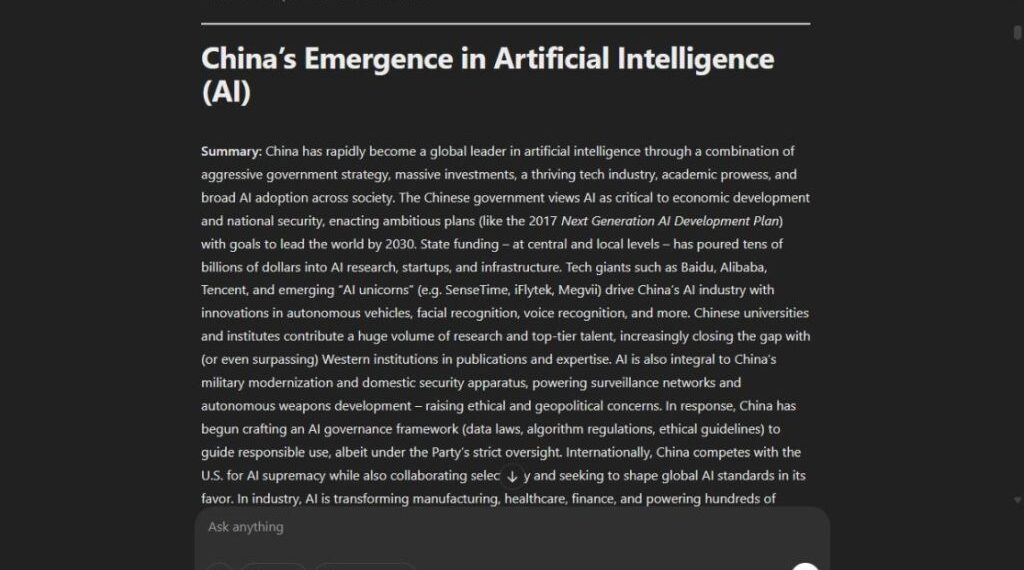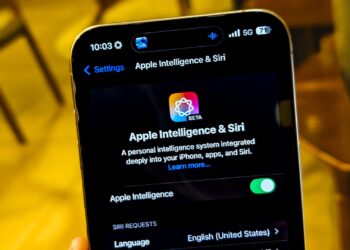OpenAI and Google are currently in a fierce competition to develop the most advanced Deep Research agent. Google’s Gemini utilizes the innovative Gemini 2.0 Flash Thinking model, while ChatGPT employs a refined version of the o3 model. Notably, Google provides its agent free of charge, while OpenAI charges $20 for access. To see how these two powerhouse agents perform, we’ve put them to the test.
Task #1: Investigating China’s Rise in AI
For the first task, I requested both ChatGPT and Gemini to conduct detailed research on China’s ascent in the AI sector. I asked them to evaluate leading AI firms in the country, government policies, competition with U.S. research labs, and more.
The ChatGPT Deep Research agent took 10 minutes to complete the task, citing 30 different sources and producing an extensive report of 9,000 words. Conversely, Gemini’s Deep Research agent wrapped up its inquiry in 8 minutes, generating a more concise 3,000-word report. However, it analyzed over 170 sources, which is impressive.
Upon reviewing both reports, I discovered that ChatGPT’s Deep Research agent entirely overlooked China’s latest AI innovations. It did not reference emerging technologies like the DeepSeek R1 or Baidu’s new Ernie 4.5 model.
It became clear that ChatGPT primarily drew from outdated sources, including a Stanford article from 2017 and a Wikipedia page last updated in 2021, resulting in a wealth of obsolete information. The report also failed to address recent advancements in video generation models and robotics companies.

In contrast, Gemini’s Deep Research agent, while concise, noted, “DeepSeek, a startup founded in 2023, has rapidly gained recognition with its R1 model.” Furthermore, it highlighted, “DeepSeek has set itself apart through innovative developments, such as Multi-Head Latent Attention (MLA).”
Gemini also covered video generation AI tools such as Kling AI, MiniMax, and robotics firms like Unitree. My conclusion is that Gemini benefits from Google’s search index, which is consistently refreshed with the latest content on various subjects. OpenAI, in contrast, appears to rely on Bing for its research, resulting in a tendency toward outdated information.
Task #2: Exploring the Future of AI Chips Compared to Nvidia GPUs
For the next task, I directed both Deep Research agents to examine the future of specialized AI chips in comparison to Nvidia GPUs, which are currently used for training and other applications. ChatGPT cited 22 sources and produced a comprehensive document, complete with tables and citations. As before, Gemini analyzed over 100 web pages but created a more streamlined document.
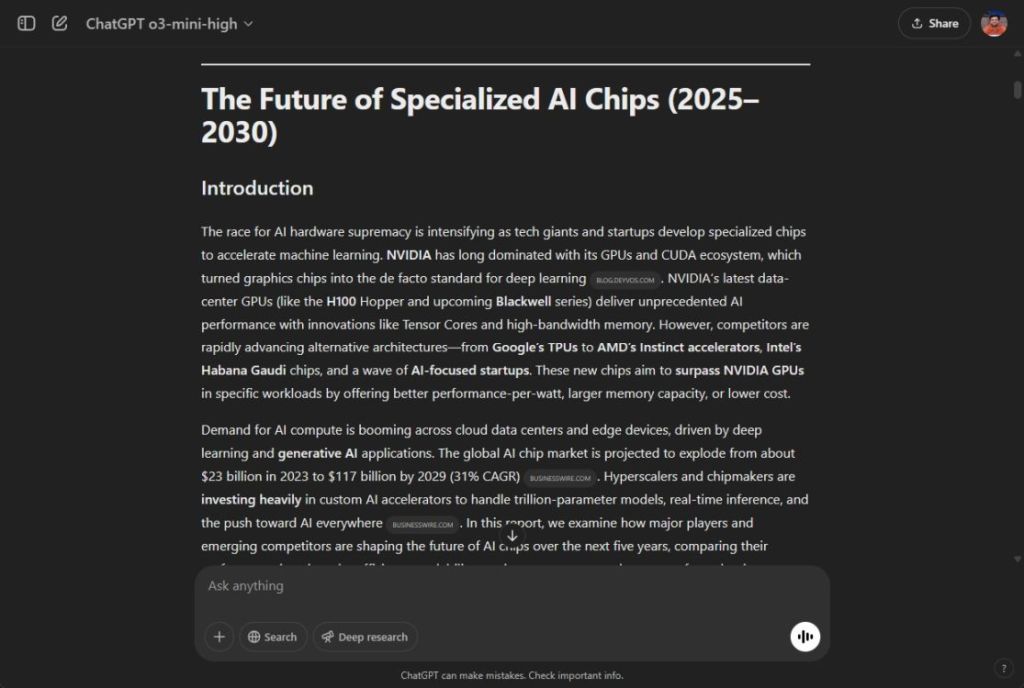
Both agents examined the emergence of TPUs, ASICs, FPGAs, LPUs, and WSEs, as well as Nvidia’s dominant position with CUDA. They also discussed new silicon startups such as Groq, Cerebras, SambaNova, Graphcore, and others. ChatGPT’s Deep Research agent even mentioned Huawei’s Ascend AI chip, which Gemini overlooked.
ChatGPT’s report also covered Amazon’s Trainium and Inferentia chips, Microsoft’s MAIA chip, Intel’s Gaudi accelerator, and Google’s TPU. Unfortunately, similar to previous shortcomings, ChatGPT provided outdated information. For example, it failed to mention that Google has already launched the TPU v6e (Trillium) chip and erroneously classified Nvidia’s Blackwell B200 as an upcoming GPU when it was actually released in 2024.
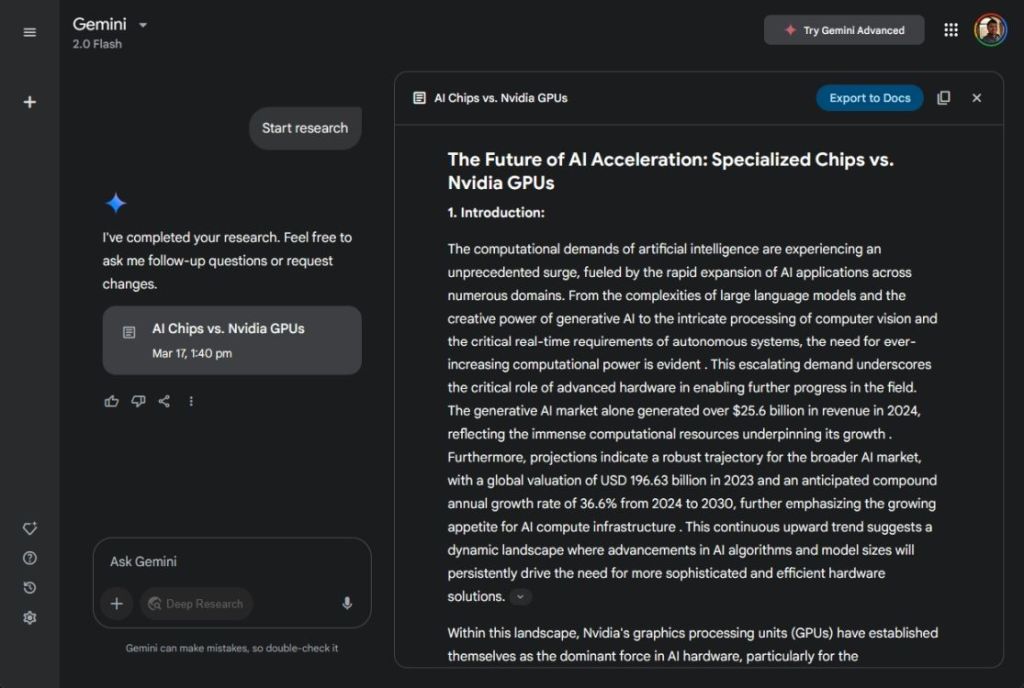
Despite these inaccuracies, I would still give ChatGPT the nod for having a more in-depth and insightful report than Gemini. However, it is crucial to recognize a fundamental limitation of ChatGPT’s Deep Research agent.
This agent operates on a fine-tuned version of OpenAI’s o3 model, which has a training cut-off in October 2023. Because of this, it lacks timely information about many advancements. While it can access the internet for updated data, it often still misses recent breakthroughs.
Task #3: Research on Obesity Management in 2025
For the third task, I instructed both the ChatGPT and Gemini Deep Research agents to investigate obesity management in the year 2025. I specifically requested that both agents include the latest developments in a range of therapies. ChatGPT referenced reputable sources and medical journals to detail current obesity management practices.
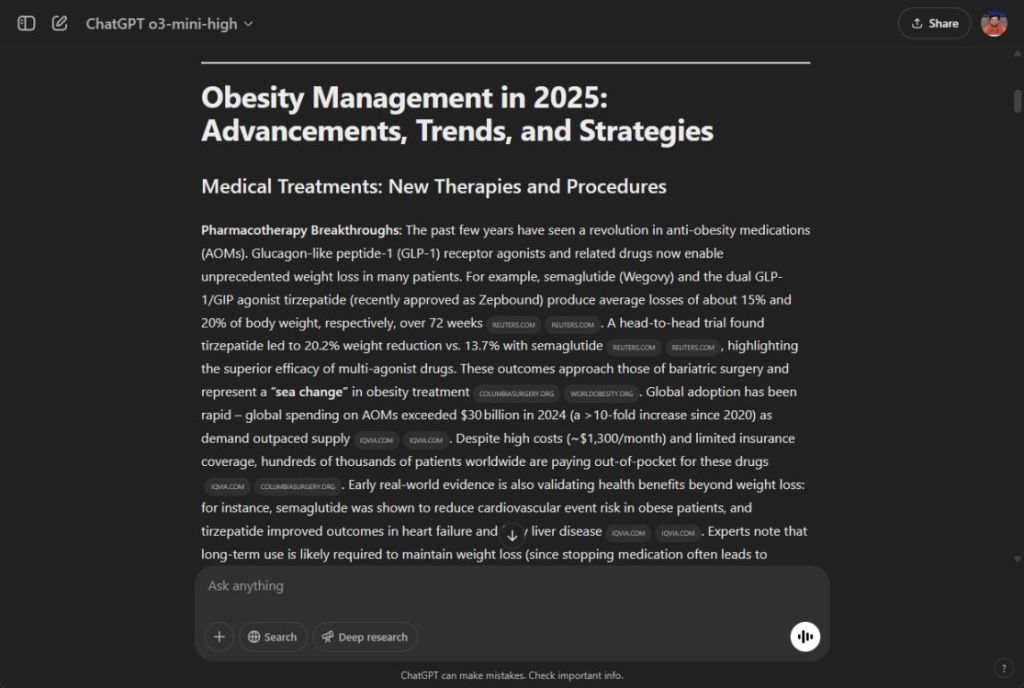
It covered exciting breakthroughs such as GLP-1 peptides, their side effects, the approval status of new drugs by the FDA, and even gene therapy. ChatGPT also highlighted current obesity management policies in the United States, the UK, and Canada.
Meanwhile, Gemini’s Deep Research agent also composed an excellent report. It listed all medical interventions while presenting upcoming drug trials in a tabular layout. Notably, Gemini brought attention to novel medications like the triple hormone receptor (Retatrutide), which is generating excitement in the medical community for its substantial weight loss potential.

Additionally, Gemini delved into companies like Novo Nordisk and Eli Lilly, which are researching innovative weight reduction drugs, providing a holistic view of current developments. Ultimately, I found Gemini’s report to be well-organized and packed with the latest information on obesity management.
Choosing Between ChatGPT Deep Research and Gemini Deep Research
Through my evaluation, I preferred Gemini’s Deep Research AI agent since it consistently provided up-to-date information across various subjects. While ChatGPT’s agent explored a broader range of topics, its limitations in accessing recent advancements hinder its overall effectiveness. Additionally, Gemini’s Deep Research AI agent is free for everyone, while OpenAI charges $20 for its service.
The improvement in Gemini can be attributed to its current operation via the Gemini 2.0 Flash Thinking model. This new reasoning system is designed to better determine what information is necessary to enhance research tasks compared to the previous Gemini 1.5 Pro model.
However, a notable advantage of ChatGPT’s Deep Research agent is its ability to accept file uploads, which Gemini does not support. This feature can be particularly valuable in STEM fields where users can upload PDFs of paywalled research journals.
Many of these academic journals are inaccessible via standard web searches. Thus, manually uploading documents can enrich the agent’s understanding and insights. Nevertheless, Gemini does allow users to export generated reports to Google Docs, which is beneficial for sharing purposes.
In conclusion, I recommend trying out Gemini’s Deep Research AI agent before considering a subscription to the ChatGPT Plus plan. Google has significantly enhanced its agent, making it much faster and more effective.

